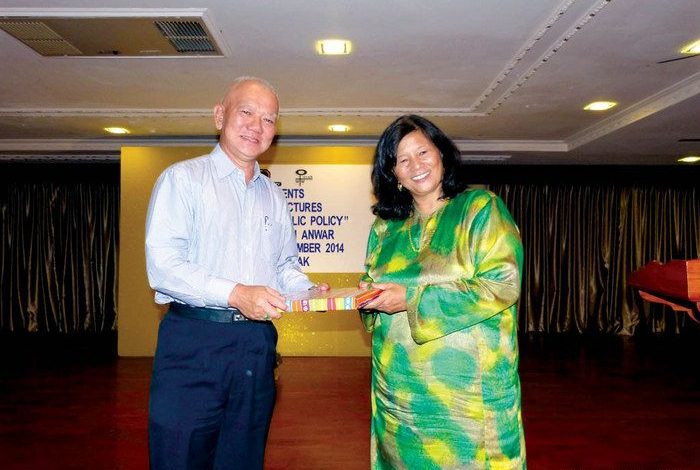Islam and Public Policy


What is Islam? Does Islam have a place in public life within the context of a constitutional democracy? Is Islam unjust and oppressive? Who has the authority to define what Islam is?
These were some of the questions posed by Zainah Anwar during her talk, Islam and Public Policy, in Ipoh recently, at the invitation of Perak Academy and Perak Women for Women Society.
Zainah is a founding member of Sisters-In-Islam (SIS) and was its Executive Director for over 20 years. Sisters-In-Islam is a non-governmental organisation working for the rights of Muslim women within the framework of Islam. She is now the Director of Musawah, a SIS-initiated Global Movement for Equality and Justice for the Muslim Family. Zainah also writes a monthly column, Sharing the Nation, for The Star.
Urging the audience to speak out as citizens of the country and help shape laws and policies that are made in the name of Islam, and the way they are being enforced, Zainah questioned, “When religion is used to make laws and policies and form practices that affect the well-being of citizens in their daily life, should only the ulama (Muslim clerics) have the sole monopoly to define what Islam is and what it is not?”
“Within a democratic state, shouldn’t all those affected by the rulings of Islamic laws have the right to speak out on their experiences of being affected by them? Shouldn’t their experience give them the authority to speak out on how Islam is understood and used to make laws and policies?”
“The founding fathers of Malaysia had clearly intended for her to be a secular country and the decision to adopt Islam as the religion of the Federation was made primarily for ceremonial purposes. Therefore, Islam does not represent the basic law of the land, unless the Constitution was amended to reflect Syariah law as the supreme law of the land.”
Although Islam is used as a source of law and public policy in many Islamic countries today, including Malaysia, these policies are based on the interpretation of the divine word by those in authority. Human understanding of the word of God is always open for debate because there is no definite right or wrong. However, those who oppose the man-made policies that are sometimes found to be unjust and biased are portrayed as going against religion.
In the end, what is Islamic law today was made by human beings who are imperfect and open to change according to circumstances to ensure that “justice” is upheld, sometimes to the point of conveniently using and abusing the law to maintain power and privilege of those in authority.
“The move towards reforming Islamic law must be granted, not just in the teachings of Islam, but in the Islamic principles that are grounded within our constitutional framework, which guarantees fundamental liberties and non-discrimination within human rights conventions, that is, all rights are due to everyone by virtue of humanity.”
“In this modern world where we are seeing the changing roles of men, women and family life, the rights of all citizens, irrespective of gender, race or religion, must be recognised to maintain peace, stability and prosperity. Only then is this just and Islamic,” Zainah reasoned.
The talk wrapped up on a cheery note when, in a surprise move local philanthropist, Koon Yew Yin, donated RM10,000 to Sisters-In-Islam, as a gesture of goodwill.
Emily


